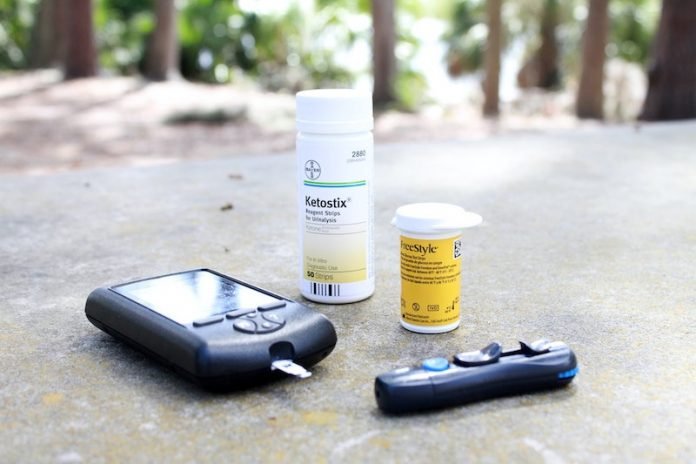
In a new study from the University at Buffalo, researchers found that people with Type 2 diabetes who were prescribed SGLT2 inhibitors lost more weight than patients who received GLP-1 receptor agonists.
The study sought to evaluate the difference in weight loss caused by the antidiabetic medications—both of which work to control blood sugar levels.
The researchers found that among 72 patients, people using SGLT2 inhibitors experienced a median weight loss of more than 6 pounds, while those on GLP-1 receptor agonists lost a median of 2.5 pounds.
Weight loss is an important quality for diabetic medications as being overweight is a common characteristic of the disease, and can eventually lead to reduced insulin sensitivity.
With weight loss, it is possible to regain insulin sensitivity, improve glucose control, and reduce heart risk factors and comorbidities.
Both SGLT2 inhibitors and GLP-1 receptor agonists are recommended as second-line therapies for Type 2 diabetes after the use of metformin, a drug also prescribed to control blood sugar, says Albanese.
In the study, the team examined records for patients with Type 2 diabetes who received either SGLT2 inhibitors or GLP-1 receptor agonists, in addition to other diabetes medications, from 2012-17.
The researchers measured weight loss after six months of consecutive therapy, and differences in blood pressure, blood sugar levels and kidney function.
Canagliflozin, sold under the brand name Invokana, was the most commonly prescribed SGLT2 inhibitor. Liraglutide, sold under the brand name Victoza, was the most commonly prescribed GLP-1 receptor agonist.
The team found no differences in blood pressure, blood sugar levels and kidney function after the use of the medications.
But SGLT2 inhibitors are more protective against weight gain caused by other antidiabetic drugs than GLP-1 receptor agonists.
The results counter previous research that has found GLP-1 receptor agonists to be the superior antidiabetic drug for weight loss
The team says these medications at doses approved for treating Type 2 diabetes are not intended for weight loss.
However, this should not discourage the discussion of this potential benefit, as even a small amount of weight loss is a unique advantage of these drugs, especially when compared to potential weight gain caused by other treatment options.
If you care about diabetes, please read studies about this stuff in oranges may reduce obesity and prevent diabetes and findings of this popular drink may help control diabetes, lower blood sugar.
For more information about diabetes and your health, please see recent studies about this diabetes drug may help slow down chronic kidney disease and results showing that this simple foot test can detect heart rhythm disorder in diabetes.
The study is published in the Journal of the American Pharmacists Association. One author of the study is Nicole Paolini Albanese, PharmD.
Copyright © 2021 Knowridge Science Report. All rights reserved.



